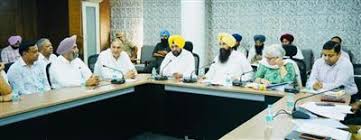In Kullu, the Vigilance Bureau (VB) of Dharamshala has made significant arrests in a case involving corruption within the educational sector. Two professors from Punjab have been apprehended on allegations of accepting bribes from a pharmaceutical university in Himachal Pradesh. The accused, Rakesh Chawla and Puneet Kumar, both from Punjab, are charged under various sections of the Prevention of Corruption Act.
Rakesh Chawla, a resident of Faridkot, and Puneet Kumar, from Barnala, were arrested on Sunday in the vicinity of Rakkar in Kangra district. During their arrest, the VB officials recovered an unaccounted sum of Rs 3.5 lakh from their possession. This cash was allegedly received as a bribe in exchange for favoring the Institute of Pharmaceutical Education and Research (IPER), Palampur, during an inspection.
The Vigilance Bureau’s investigation revealed that the two professors were deputed by the Pharmacy Council of India (PCI) to carry out an inspection at IPER. As part of their duties, they were supposed to assess the institute’s adherence to academic and regulatory standards. However, it is alleged that instead of conducting a fair and impartial review, the professors accepted a “undue advantage” from the institute. This bribe was reportedly intended to secure favorable grades and recommendations for IPER, potentially compromising the integrity of the inspection process.
The case against Chawla and Kumar has been registered under several sections of the Prevention of Corruption Act, which deals with offenses related to bribery and corruption in public offices. This legal framework is designed to address and penalize corrupt practices among public officials and others in positions of authority.
The arrest of these professors highlights ongoing issues of corruption within educational inspections and the broader academic sector. It underscores the importance of transparency and integrity in maintaining the credibility of educational institutions and their evaluations. The VB’s action reflects its commitment to combating corruption and ensuring that regulatory processes are conducted fairly and without bias.
The case continues to unfold, with further investigations likely to clarify the full extent of the alleged corruption and its implications for both the accused and the institute involved. This situation serves as a critical reminder of the need for vigilance and ethical conduct in all aspects of public and institutional governance.
SOURCE :
THE TIMES OF INDIA








